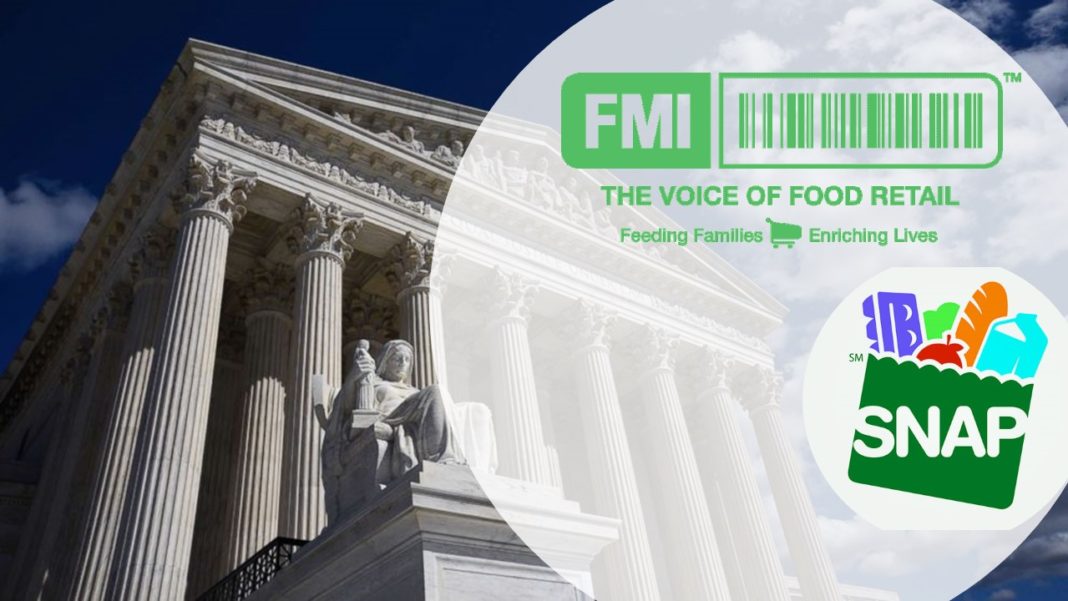In the case Food Marketing Institute vs. Argus Leader Media, the U.S. Supreme Court ruled in favor the Arlington, VA-based grocery industry trade association, thereby reversing the lower district court ruling that involved an order for retailers who participate in the Supplemental Nutritional Assistance Program (SNAP) to release store-level redemption data.
In the Supreme Court decision, it was concluded that the store-level SNAP data does qualify as “confidential” (contradicting the lower district court’s decision that it does not) because commercial or financial information that is both customarily and actually treated as private by its owner—and that is provided to the government under an assurance of privacy—is exempt from disclosure under FOIA within the meaning of Exemption 4.
In regards to the ruling, Leslie Sarasin, president and CEO of FMI, commented: “We agree with the U.S. Supreme Court’s ruling today that a 45-year-old interpretation of what constitutes ‘confidential commercial and financial information’ required reexamination. Our industry’s commitment to the shopper remains constant amidst seismic marketplace shifts. The nation’s grocery stores have long kept confidential the amount consumers spend at individual stores whether through payment by cash, credit, debit or the Supplemental Nutrition Assistance Program, or SNAP. This store-level sales data undoubtedly must be considered confidential because its release would provide an unfair advantage to competitors.”
The case came about when the South Dakota newspaper, Argus Leader, filed a Freedom of Information Act (FOIA) request for the names and addresses of retail stores that take part in the Supplemental Nutritional Assistance Program (SNAP) and each store’s redemption data from the U.S. Department of Agriculture (USDA). While the USDA provided the names and addresses of the stores, it did not, however, supply the store-level data that the newspaper requested, withholding that information as protected from disclosure under Exemption 4 which covers confidential financial or commercial information. In response, Argus Leader sued the FDA to get access to the store-level data. The district court overseeing the case ruled that disclosing store-level redemption data would not cause substantial competitive harm to the affected stores, and therefore ordered the USDA to supply that information. Because the USDA declined to appeal the District Court’s decision, FMI intervened on behalf of the grocers and petitioned for Supreme Court review after the Eighth Circuit loss, which it was then granted.




